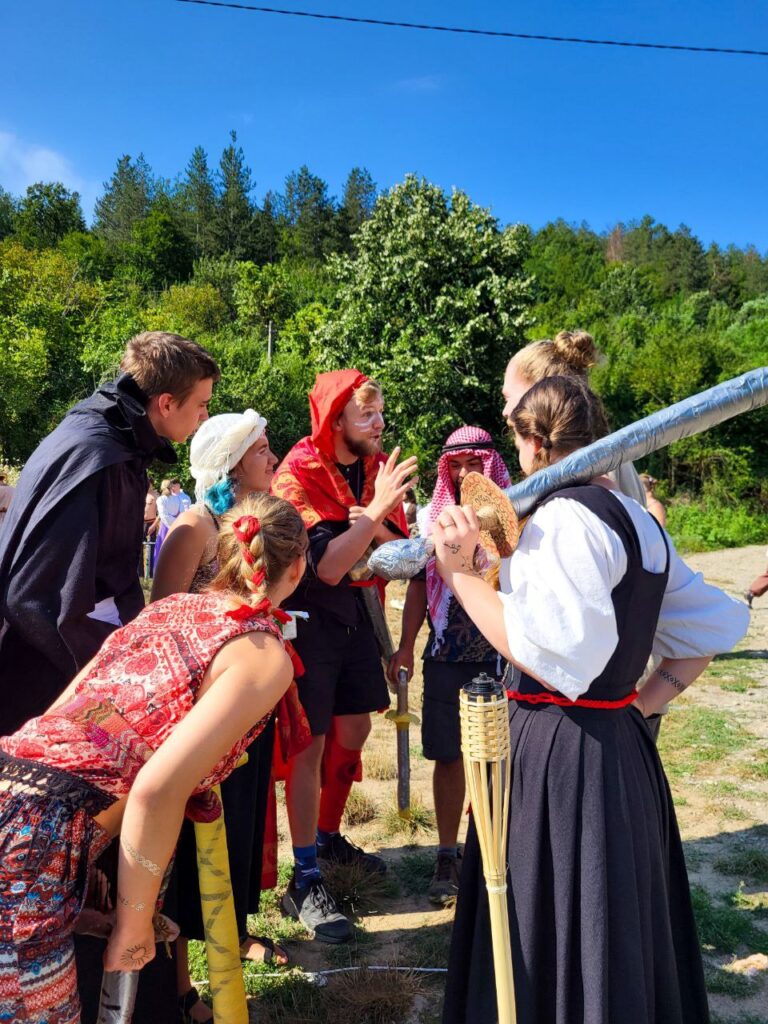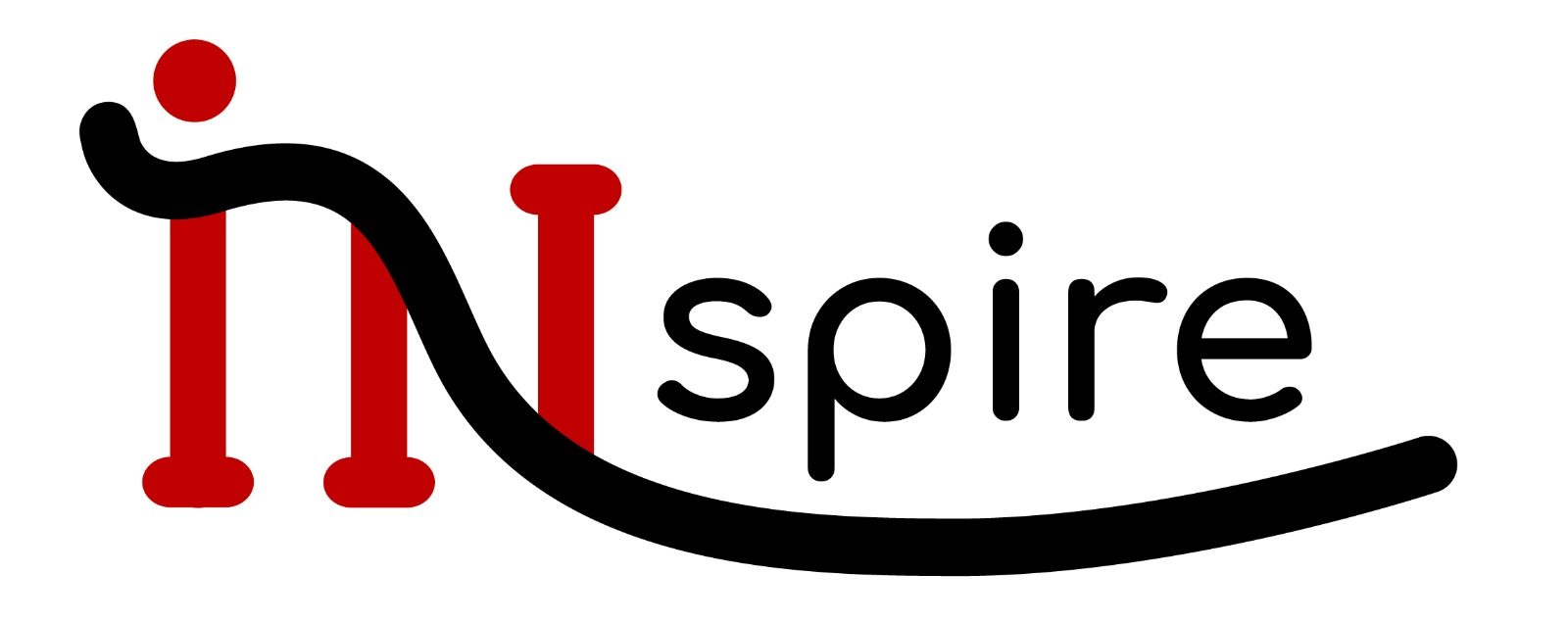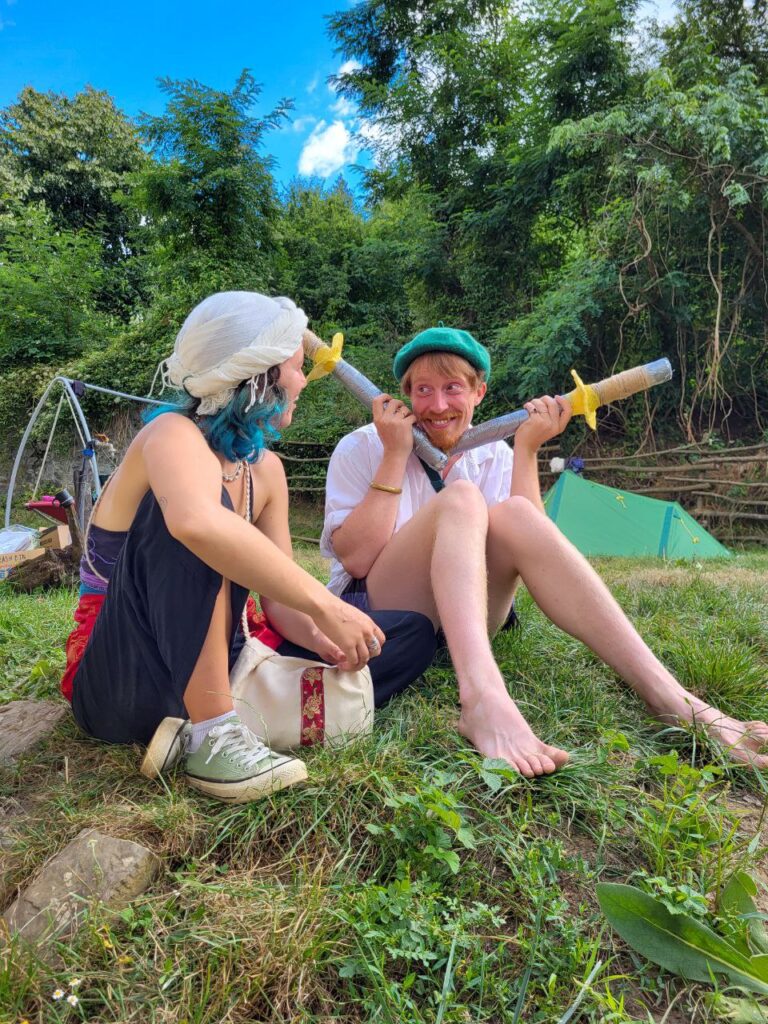
Division. Unknown, spontaneous happenings and our response to them shape us, our environment, and in consequence the groups we take part in. You can see this as recently as a couple of years ago, when the biggest recent unknown hit and amplified whatever fears we had of each other. This solidified preconceptions, hardened prejudice and deepened our presence in the bubbles we were slowly drifting towards already. It is an understandable phenomenon, but still regrettable. The very realities and responsibilities of life prevent us from seeing and exploring other possibilities, as we only have so much time.
Play. One of the more fundamental pillars of culture is the dissemination of cultural values and experiences to the younger generations. Be that through education, mentorship by parents and closer relatives, or even through leisure activities such as the games we play. Each region has its differences, such as Korea with Squid Game, which promotes competition and teamwork. Japan, a close neighbor, has Lucky Laugh as a similarly popular game in which children, with blindfolds on, try to pin facial features onto an empty face space on a piece of paper. A much more relaxed game with no competitive elements. This game is similar to the American game of pinning the tail on the donkey. These similarities are significant and valuable, as they provide a common bedrock through which to find common ground with another from different places and walks of life.
Playing is a safer social environment in which we can experiment with each other and with ourselves, without profound repercussions. This truth applies in childhood, of course, but it is also just as relevant as we advance further into life, even though we may set play aside as the needs of life pile up. This does not have to be the case though. Since we are free to do as we please, would we not be pleased to experiment a bit?
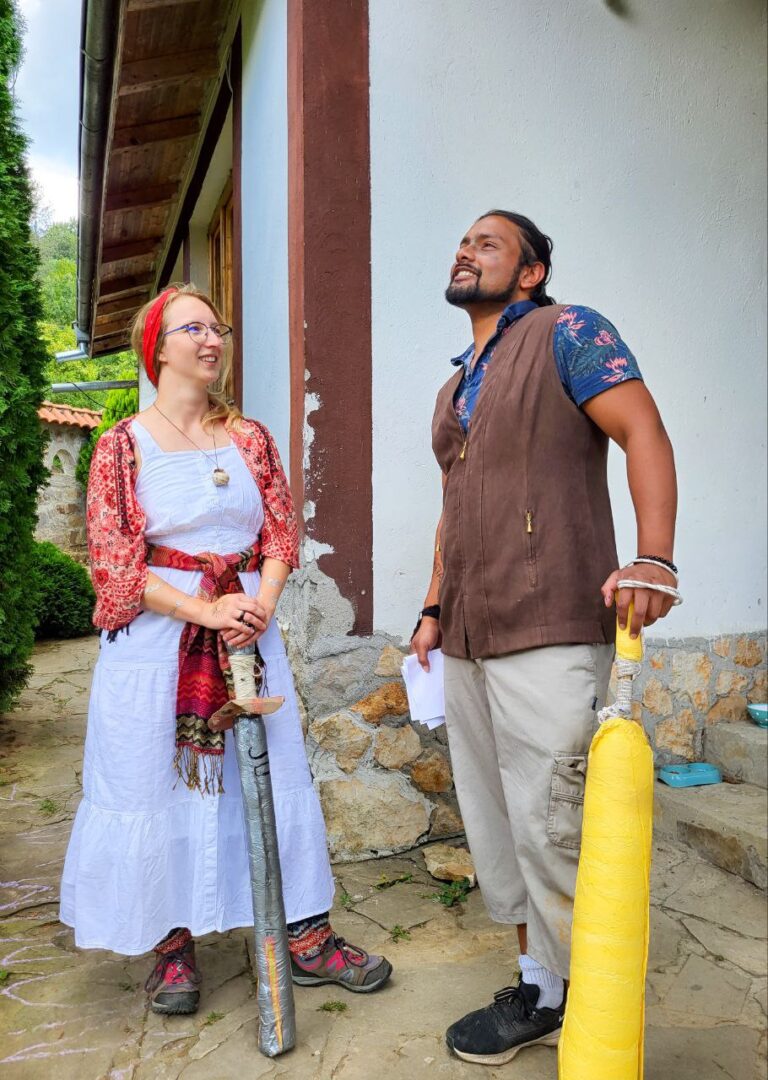
Enter LARP. A flexible play system where you can experiment with life in different contexts and periods, such as a medieval power struggle, a fantasy carnival, or maybe even a squad in WWII. Conflict and competition is not necessary, but possible. You can just have a medieval tea party if you wish. Theatrics and grand expressions are possible, but if physicality is more your thing, you can just duel.
Vojta and his team played with this concept and, with help from Synergy Bulgaria, developed a 10-day program to explore social exclusion and inclusion, as well as providing a space for participants to explore themselves and maybe dig up something new. We had 3 LARP-ing days, surrounded with days with warm-up and wind-down activities. The warm-up period consisted of us being split into tribes with historically accurate and relevant names. This starts to set-up social exclusion and division. We were obliged to not group ourselves based on nationality. This sets the scene for building up division. As part of the warm-up days, we had activities through which we each shared something about each other, deepening the bonds between people in their respective tribes. We also prepared the style and customs of our tribes, each group manually constructing a shared identity.
Then came the LARP. The old became new again as we slipped into our roles as emissaries from our respective tribes and empires, meeting in a neutral kingdom sitting at the intersection of our four borders. The first day was a day of fully un-obstructed roleplay, where we all were looking to fulfill our personal objectives, be it through negotiating, scheming or fighting. The backdrop of our day was a welcoming festival prepared by the neutral kingdom, where we competed in a series of challenges to have our tribes shine. One challenge was combat, another was dancing and the final challenge after dinner was a show of poetry.
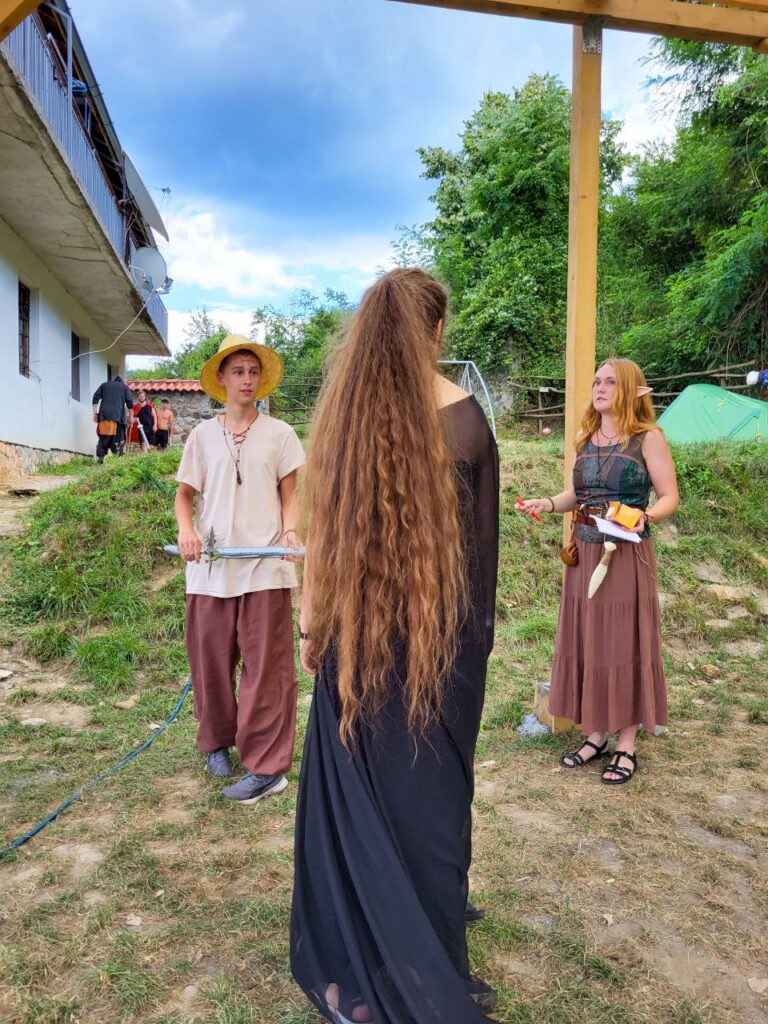
The poetry contest was done at the base of a campfire in the late evening, but the truest sparks came from within as a declaration of war was sounded! Thus starts day 2 with a fight. A test of both might and loyalty, as the diplomats of our groups had their elaborate web of shaky alliances of convenience challenged. In the end, one tribe was the loser. In an ironic twist of fate, it was the group which started the conflict. They were forced to disband, their members scattered to the winds as refugees to the other tribes. Step by step we walked on the cobblestone road to unity. Day 2 continued with each tribe welcoming their neophytes in whichever customs they preferred.
We also had a moment to explore ourselves, as we were tasked to battle beasts roaming the lands. Those beasts however could be best described as mirrors, acting as reflections of our inner beasts; aspects of ourselves that we are displeased with which we were now being forced to confront. I’ve seen both people leaving with gleaming smiles and long thousand yard stares.
Day 3 was a day of closing. We were still separated, but the frontier lines were blurring more and more. The final games took a more individual nature, as we were tasked to survive as best we can in the lands grown weary by war. Some of us, well most of us actually, turned to the most desperate of actions in an effort to just live. Not to live as kings or queens, knights or warriors of legends, but just to be alive. The barriers of tribal nature were well and truly breaking, as we were forging fresh bonds navigating through a new and great unknown. Some of us were guided on a path of enlightenment, dedicating ourselves to bringing back prosperity to all. We were growing closer as the activity was growing to a close.
By the end we were not three tribes, but a group which made it through hell with a smile on our faces.
Thus, the larp ended. We had a couple of days to unwind, enjoy ourselves, reflect and give back to the house which offered us a glimpse into ourselves and to the team which served to build the environment which made that possible.
We’ve come a long way in a short amount of time. We’ve been faced with unknowns which caused us to find new strength, new aptitudes to rely on. We’ve formed connections, maybe even friendships, along the way. We’ve explored parts of ourselves that we maybe chose to set aside for one reason or another. All in a context where nobody’s safety was on the line, but, with the right amount of immersion, it surely felt that way at times. It is all thanks to a flexible system of theatrics and physicality and its application by Vojta and his team that this experience was possible.
– Alexandru
